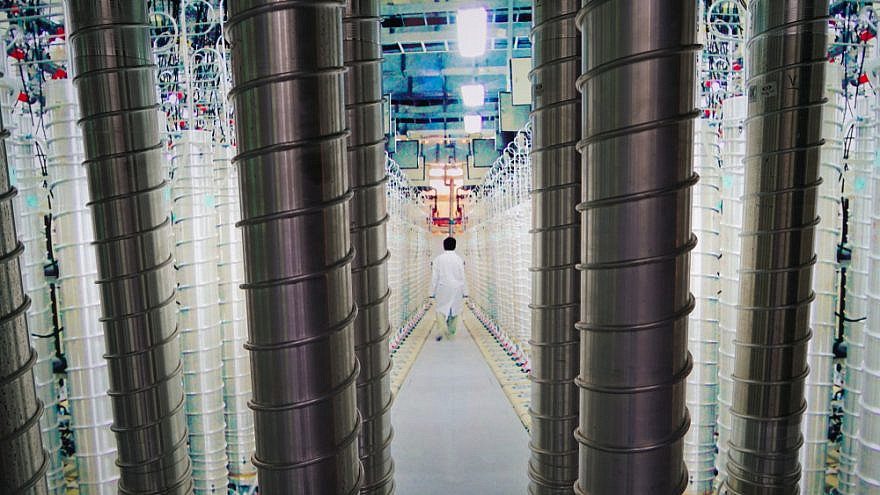An Iranian official said on Monday that it was still possible to salvage the 2015 nuclear deal, blaming stalled negotiations on the West, and particularly, the United States.
A deal was “possible both in terms of the technical and political aspects,” said Iranian Foreign Ministry spokesman Nasser Kanani, five years to the day after then-U.S. President Donald Trump withdrew Washington from the agreement.
Kanani pointed the finger at “the other sides, especially the U.S.,” and accused them of “hav[ing] procrastinated.”
International Atomic Energy Agency chief Rafael Grossi visited Tehran for two days of high-level meetings in March, after the agency confirmed in a report that its inspectors had found traces of uranium enriched to 83.7%, or military grade, at Iran’s underground nuclear site in Fordow.
A copy of the confidential IAEA quarterly report stated that “particles” of the substance had been detected.
Iran has been enriching uranium to up to 60% since April 2021. About six months ago, it began enriching to 60% at a second site at Fordow.
The new IAEA report pegged Iran’s uranium stockpile as of Feb. 12 at some 3,760 kilograms (8,289 pounds)—an increase of 87.1 kilograms (192 pounds) since its last quarterly report, in November. Of that, 87.5 kilograms (192 pounds) is enriched up to 60%.
“Despite the clerical regime’s best efforts, Tehran’s nuclear weapons quest did not begin the day Trump left the [deal]. To think everything is a reaction to May 8, 2018, is to fundamentally fail to understand why Iran wants a nuclear weapon or at least a weapons option to begin with,” said Behnam Ben Taleblu, a senior fellow at the Foundation for Defense of Democracies.
“On its best day, the [agreement] was a mere Faustian bargain, sanctions for centrifuges, and perhaps more akin to putting a misbehaving child in timeout rather than arms control and threat reduction. The built-in sunsets [expiration clauses in the 2015 nuclear deal] allow for Iran’s legal nuclear expansion over time, rendering critiques of Iran deal defenders of Iran’s recent nuclear escalation as null and void,” he added.
“The Biden administration entered office trying to resurrect the accord, yet it’s clear the reason for no resumed deal has more to do with Tehran than Washington. Two and a half years in, deference to Tehran has emboldened Iran’s leaders and made the prospect of productive nuclear diplomacy increasingly unlikely in the short term. In short, the Iran deal is dead. Washington must move on,” Ben Taleblu said.
Israeli Defense Minister Yoav Gallant said last week that Tehran’s nuclear program had already generated enough material to make bombs.
“While one Iranian arm spreads weapons and [terrorist] proxies, the other continues its program to obtain nuclear military capabilities. And make no mistake—Iran will not be satisfied with a single nuclear bomb. So far, Iran has gained material enriched to 20% and 60% for five nuclear bombs,” said Gallant.
“Iranian progress and enrichment to 90% would be a grave mistake on Iran’s part, and could ignite the region,” he added.


























